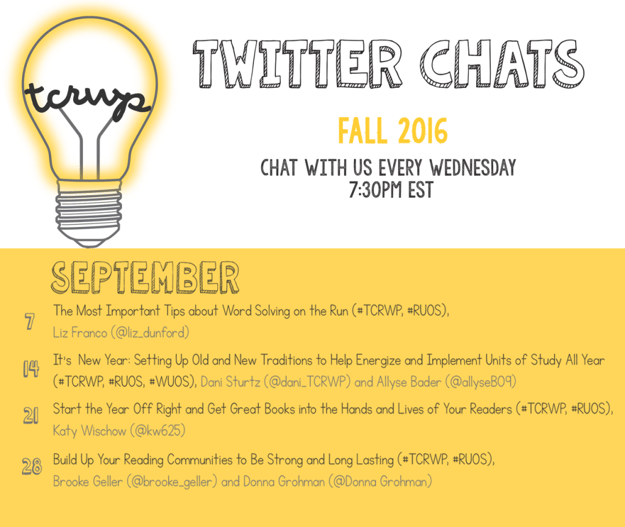 by Anna Gratz Cockerille
by Anna Gratz Cockerille
It is fitting that Lucy Calkins and Liz Dunford Franco’s book, Building Good Reading Habits, the first in the first-grade Units of Study for Teaching Reading series, was the very first book to be written in the K-2 Units of Study. This unit, which tackles the word-solving skills upon which all other reading skills are built, became the foundation and model for the entire series. Just as the habits that young readers build at the start of the year become the foundation and model for all of the other skills, they will build as the year goes on.
The word solving lessons that come at the start of the year have two functions. The first is to teach children that they can empower themselves to tackle even the most challenging words on the run, right away. They don’t have to waste a moment feeling stuck by hard words. Children will also learn a secondary lesson, which is how learning will go in their classroom. By empowering them with lots of strategies to draw upon when they get stuck, they learn that this year, they will be able to take charge of their learning. They will be powerful readers, ones who know how to get move through tricky spots without getting flustered.
As a first-stop resource for learning about word solving, check out Chapter 11 in A Guide to the Reading Workshop, Primary Grades, if you haven’t already. This nuts and bolts chapter has a wealth of information, including:
- tips on assessment,
- explanations of terminology and concepts, and
- grade-by-grade instructional methods, and
- ways to integrate word study into each part of a balanced literacy day.
As children encounter more complex texts this year and throughout their primary years, they will draw upon these word solving lessons again and again. So, it’s worth putting some time into thinking about this topic and sharing ideas with others. Liz Franco will lead the TCRWP community tomorrow night in doing just that.
Each Wednesday night at 7:30 pm Eastern, The Teacher's College Reading and Writing Project hosts a Twitter chat using the hashtag #TCRWP. Join @liz_dunford to chat about word solving tomorrow evening.
Not on Twitter? Take Heinemann’s free Twitter for Educators course here.


